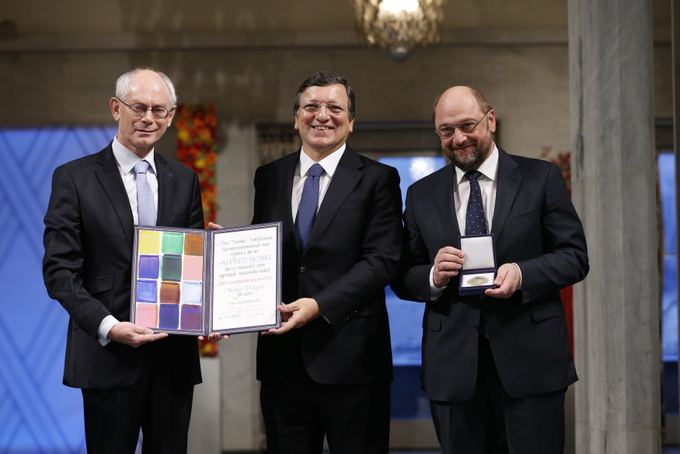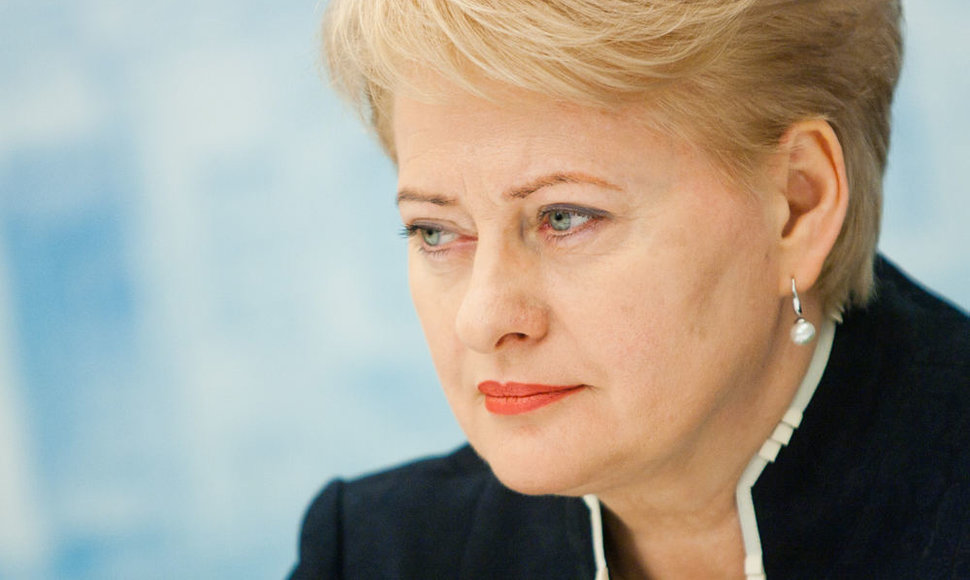"I believe that we're also a European example of a country which was able to regain its independence and develop without any military instruments but, instead, in a peaceful way and with songs, the 'singing revolution',” Grybauskaitė told BNS after arriving in the Norwegian capital.
The Lithuanian president downplayed the choice made by leaders of a few EU countries to miss the event. In a telephone interview from Oslo, she said that the crisis-stricken Europe remains unified enough, regardless of the escalated nationalist tendencies.
- The Nobel Peace Prize for the EU has drawn highly controversial reactions. What is, in your opinion, the importance of the prize during economic recession?
- I don't see them as “highly controversial.” A few countries are Euro-skeptical, they have their reasons for being so, but even these countries delegated high-ranking officials – for example, the United Kingdom delegated its vice-PM. All countries are represented, merely six of them are represented on a lower level than the head-of-state.
Manifestations of nationalism, seclusion, and homophobia always flare up during all crises. It is a general rule, the current period is not an exception.
The organization has existed peacefully for more than 50 years, finding solutions by way of democratic agreement, (countries) show solidarity towards each other and respect human rights, it is a unique organization on the global scale. Even during the current downturn, the organization has also managed to help each other in a peaceful manner to solve economic problems, as well. I believe the award is well-timed.
- There have been warnings in the past years that the crisis has contributed to escalation of nationalism, a neo-Nazi party has been elected to power in Greece. Do you think the crisis could jeopardize the European peace?
- Manifestations of nationalism, seclusion, and homophobia always flare up during all crises. It is a general rule, the current period is not an exception. We have seen this in earlier crises that have struck Europe on a regular basis – the oil crisis, the banking crisis, or the current crisis of sovereign debt. This is not extraordinary – these are modern phenomena that emerge during such downturns. Europe has faced this in the past.
- Many are speaking about the split of Europe into the North and the South, the euro zone and the non-euro countries. How unified is Europe on this day that it receives the award?
- It is a symbolic prize, which celebrates the development of all Europe. I believe that (Europe) is unified enough, especially since the money will be transferred to a special fund dedicated to children who have suffered from wars. I believe this is also very symbolic.
The award is also important to Lithuania, as it managed to regain its independence peacefully. I believe that we're also a European example of a country that was able to regain its independence and develop without any military instruments but, instead, in a peaceful way and with songs, the 'singing revolution'. It is a symbolic prize to Lithuania, as well, which has managed to develop successfully and is, in a sense, one of the best examples of a European country.
- Will this event provide an opportunity to discuss relevant matters with other visiting EU leaders?
- During the official luncheon, I will sit next to European Council President Herman Van Rompuy. Doubtlessly, I will have a chance to talk about the February talks on the financial perspective. We will have time to talk to all leaders.
 |
| AFP/„Scanpix“ nuotr./Herman van Rompuy, Jose Manuel Barroso, and Martin Schulz |
-----
At the Monday's ceremony, the award will be accepted by European Council President Herman Van Rompuy, European Commission (EC) President Jose Manuel Barroso, and European Parliament (EP) President Martin Schulz.
The Nobel Committee has said the prize was awarded for half-century-long contribution to reconciliation, democracy, and human rights.


















